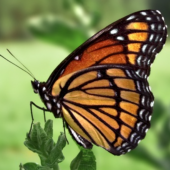
Abstract: This word journey explores flaws in our approach to cultivating environmental ethics and caring for biodiversity, especially among youths, through the lens of Carson McCullers’ classic story about the tragic but common failure of so many to achieve love between human beings.
Continue Reading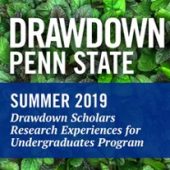
Abstract: Podcasts are increasing in popularity as an educational tool in recent years, but there remains a lack of podcasts that focus on climate change. The goal of this project was to create a series of audio files that address global warming solutions in the state of Pennsylvania, with each episode based upon a drawdown solution. Project Drawdown is a nonprofit organization that models how to reach “drawdown”— the future point in time when levels of greenhouse gases in the atmosphere stop climbing and start to steadily decline. This audio collection contains new and original podcasts addressing each Project Drawdown sector of global warming solutions, such as materials and waste, electricity generation, and land use. To highlight efforts in Pennsylvania, thirteen interviews were conducted with scientists, journalists, and professionals from organizations across the state, such as Feeding Pennsylvania, Southeastern Pennsylvania Transportation Authority (SEPTA), Philadelphia Green Roofs, StateImpact Pennsylvania, and Land Air Water Legal Solutions. Named Drawing Down in Pennsylvania, the podcast collection starts with an introductory episode, then eight episodes each corresponding with one of the Project Drawdown sectors, and wraps up with two additional episodes – one titled “Hope” with messages of optimism towards achieving warming solutions from the interviewees, and a special episode that focuses on The Pennsylvania State University and its efforts toward to drawdown. The audio collection is published online, together with corresponding transcripts and supplemental materials. It is hoped that these podcasts will help inform Pennsylvania residents to make choices and to take action for a sustainable future. For residents outside of Pennsylvania, these drawdown efforts can be applied to different populations and regions. The entire podcast series can be accessed at: https://sites.psu.edu/drawingdownpa/ and is suitable for middle school through college classrooms as well as general audiences.
Continue Reading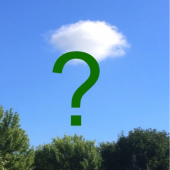
Increased understanding amongst scientists and the general public about anthropogenic impacts in general, and climate change in particular, behooves us as educators to adjust our courses and curricula. “Sustainability” and “green” topics are increasingly being discussed and incorporated, but this should be done with deliberation. We undertook this study to understand attitudes, perceptions, and habits of the student body at Iowa State University, with a focus on environmental knowledge and behaviors. Overall, we found that, regardless of demographic, students appear to be interested in environmental topics, reducing their footprint, and improving the environment overall. But, they did not necessarily want to pay more, nor did they fully embrace personal responsibility.
Continue Reading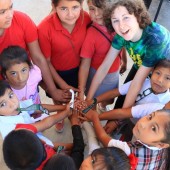
Imagine a world where people hold the highest standards for collaboration, understanding, and mutual respect. Imagine a world where people are engaged and hold a deep commitment to creating genuine, just, and mutually-empowering beneficial relationships. Imagine a world where people have the ability to connect across cultures, appreciate, and deeply listen to different perspectives, understand complex systems – and how we all fit into them – and together co-create solutions to the most daunting of global challenges. Imagine a community of people bringing forward energy and a sense of possibility, and stepping up to create the world we want to live in.
Continue Reading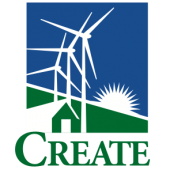
Abstract: When examining energy consumption in human history, it is evident that society is entering a new era where the costs of energy generation from renewable sources are now competitive with fossil fuel generation. In light of this advance, this report examines recent milestones in the renewable energy sector, and projects what the near future might hold. In the years ahead, growth in the renewable industry will create increased demand for a trained workforce of scientists, engineers, and technicians with knowledge of renewable energy. Faculty development and educational programs will play a key role in preparing the next generation of renewable energy professionals. This report highlights the impact of one such initiative that was funded by the National Science Foundation. Educators are called to join the effort to create a sustainable future powered by renewable energy.
Continue ReadingAbstract
The study assesses the extent to which curriculum of secondary schools in Tanzania addresses sustainable education through integration of environmental education. Specifically, it evaluates the subjects used to deliver environmental education in secondary school. Also the study found out perceptions, challenges, and recommendations for implementing environmental education. This research adopted a case study, qualitative approach to study the subject matter in its natural settings while making sense of the contents of the subjects and perceptions of stakeholders. Cross sectional, stratified sampling involved both students from all classes, experienced teachers in geography and biology and a head teacher as well. It was found that most environmental education competencies are delivered mainly through the geography subject, and some in biology using an integrated teaching approach. Students and teachers were fairly knowledgeable and had understanding of basic environmental issues. Main challenges facing implementation of environmental education included an integrated learning approach, inadequate knowledge on environmental education, lack of support from each other and from school administration, and cultural myths and beliefs.

This paper describes a group of mountain museums set amidst the Eastern Alps and the Dolomites, considering their significance for the cultural identity, heritage education and sustainable tourism in South Tirol. The importance of the Mountain Museums is analyzed in connection to their setting and to the development of the communities in the area. The exhibits are analyzed considering their role in the construction of a regional identity and in the education towards the appreciation and preservation of the natural and cultural heritage of mountains, locally and worldwide. For the purpose of this research, the author visited the six buildings belonging to the net of the Messner Mountain Museum and she conversed with the director, Mr. Reinhold Messner, who is often credited as the most remarkable alpinist in history.
Continue Reading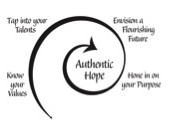
Abstract: Hope is a human process of discovery and perseverance that is based in personal values, a vision of the future, and a sense of purpose. This essay gives a brief overview on the role of phenomenological research in discovering the meaning of people’s lived experiences, such as the experience of hope. An example of phenomenological research on field ecologists’ lived experiences of climate change is provided in order to illuminate the experience of “silver linings” as the experience of hope while living in the midst of the dark cloud of climate change. An overview of a reflective curricular activity designed to cultivate hope and purpose in sustainability studies is provided.
Continue Reading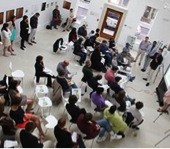
Helfrich JSE Nov 2015 Hope Issue PDF Abstract: This paper explores the creation and successes to date of an undergraduate minor program in Sustainable Community Development at Hobart & William Smith Colleges (HWS) in Geneva, New York. As a case study, it describes the program that HWS faculty created, the various components that comprise the […]
Continue Reading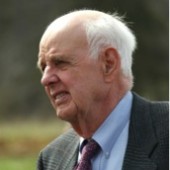
Schreck JSE Nov 2015 Hope Issue PDF Abstract: This essay chronicles three experiences I had within a matter of days that clarified for me how easily the good sense of Wendell Berry’s thinking is drowned out by the reductive presuppositions of modern industrialism and how necessary his thinking is for our hope of survival. With […]
Continue ReadingRenewable energy has become an important priority to the development of human society. The authors proposed an innovative “Proposing-Learning” model to improve the renewable energy education at the university level, in which the student community was extensively involved in the selection, development and assessment of a capstone project. In this project, a hybrid energy harvesting system prototype comprised of a bamboo wind turbine and solar panels was developed at the University of Vermont. The project idea was initially proposed through an online collective intelligence voting system, and then discussed in a committee comprised of students, faculty, staff and alumni members. A group of undergraduate students, representing different engineering disciplines, worked with the faculty advisors to create the prototype successfully. Good assessment was received from the students and local community for the project. Finally, the authors discussed the future effort to improve this education model and the potential applications of the hybrid renewable energy system.
Continue Reading
Undergraduate energy education is often offered from a specific perspective, such as engineering, sustainability, policy, or economics. This essay argues that undergraduate programs in energy should be explicitly interdisciplinary, because issues surrounding energy production, transmission, and use have multiple perspectives. Challenges to creating interdisciplinary energy programs include often-compartmentalized nature of colleges and universities, and employment prospects for broadly-educated graduates that may not be clear. Strategies for overcoming those issues are proposed, but others remain to be developed by leaders in undergraduate energy education.
Continue Reading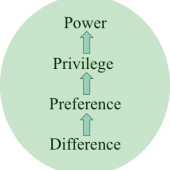
This paper explores the intrinsic but often weakly developed links between sustainability and issues of diversity, power, and privilege. It offers a systems-oriented conceptual framework for exploring and understanding how issues of diversity, power and privilege operate in social-ecological systems. This framework can be used as a learning tool with a wide array of audiences (higher education, organizational development, adult learners) and educational contexts (including but not limited to sustainability education programming).
Continue ReadingThe United States along with many other nations actively support the United Nations agenda to educate the next generation about sustainability. Library and information science (LIS) educators may support this effort by incorporating sustainability concepts into the LIS curriculum. While multiple alternatives exist for this goal, this paper argues and provides ideas integrating sustainability into a course focusing on management, offered, and frequently required, by most American Library Association accredited LIS programs. Discussion explains the meaning of sustainability; the international agenda surrounding it; why LIS programs need to help further the sustainability agenda; and, alternatives for incorporating sustainability into the LIS curriculum.
Continue Reading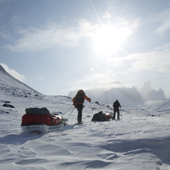
Adventure has been incorporated into sustainability education in a variety of ways, including through outdoor education and, more recently, through technology-enhanced learning. Technology has, for example, expanded opportunities for experiential learning through adventure as well as allowing learners to journey virtually along with explorers and scientists to the far-reaches of the world. This paper offers an overview of how adventure has traditionally been employed in both formal and informal education, discusses the differences between adventure education and adventure learning, shares research conducted on the role of adventure in the GoNorth! Adventure Learning Series, and advances suggestions for how adventure might be employed in sustainability education using distance, online, and mobile learning. The researchers propose the user-driven adventure learning environment (UDALE) as one model that educators and designers can draw from in both formal and informal learning settings as a means to fuse adventure, technology, and sustainability education in a pedagogically meaningful way.
Continue Reading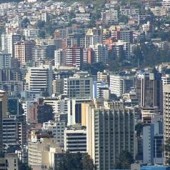
Two developing strands of a multidisciplinary literature provided an impetus for this paper: 1) the emergence of new regionalism, new urbanism, and smart codes that inform urban planning and design principles and practices for environmental sustainability, and 2) the diffusion of telecommunication and multi-media technologies that facilitate implementation of pedagogic principles in the “classroom.” The emerging urban planning and design paradigms anchor environmental sustainability issues firmly in place and space with an emphasis on the physical form of cities and regions, which, due to induced vehicular travel, is linked to greenhouse gases with consequences for climate change. Innovations that enhance learning in the classroom or the community increasingly embed and diffuse telecommunication and multimedia technologies. The intersections of urban sustainability, planning, pedagogy, and technology are briefly reviewed in this paper. It turns out that urban planning and design paradigms—particularly those with an emphasis on systemic knowledge, holistic views of both the natural and built environments, collaboration, communication, and reflective practice—synergize with environmental sustainability goals. Furthermore, these very features are ingredients for effective education for urban sustainability, particularly in conjunction with advanced telecommunication and multimedia technologies.
Continue Reading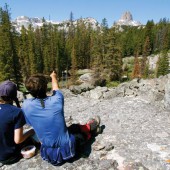
Minimum impact camping is a focus of most wilderness programs, but what example are we setting for our students before we get to the backcountry? In the past eight years NOLS has increased its focus on leading and teaching front-country sustainability by example, in addition to Leave No Trace practices taught in wilderness classrooms. This article explores some of the strategies, challenges, and successes in bringing sustainability to NOLS’ front-country operations.
Continue Reading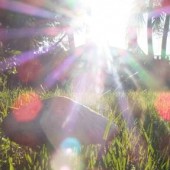
Jack Turner (2005) once wrote “we treat the natural world according to our experience of it.” How are our students “experiencing sustainability” in U.S. colleges and universities? With the rise in popularity of education for sustainability initiatives in both K-12 and higher education, experiential education has been championed as a key pedagogical approach moving forward. Experiential curriculum projects come in many different forms. From outdoor education and service learning to so-called “hands-on” applied work on campus projects and field science research, students are increasingly “learning by doing.” Yet far from just another methodology to be used in the classroom, the rise of experiential approaches indicates deeper tectonic shifts in higher education. As students and faculty engage in this form of learning, questions are raised as to the historic divide between theory and practice, the separation between so-called “town” and “gown” cultures, the curriculum and the co-curriculum, and what forms of knowledge and skills are of the most worth to a 21st century graduate. This analysis first briefly surveys the theoretical history of experiential education before proceeding to consider two specific curriculum projects at the intersections between sustainability and experiential education—place-based learning and project-based learning. The analysis concludes with a discussion of the possibilities and limitations of current forms of experiential education in higher education and a consideration of future trends and developments.
Continue Reading
This report describes a unique technique for presenting an introduction to sustainability science course that is both required for sustainability science majors at a large Mid-Atlantic state university and a general education non-laboratory science course. The World Scientists’ Warning to Humanity, released by the Union of Concerned Scientists in the late 1990s, serves and an indictment of humanity. The course mimics a trial as it proceeds from the indictment through an arraignment, pre-trial, trial, verdict, and sentencing with students acting both as the accused and the jury.
Continue Reading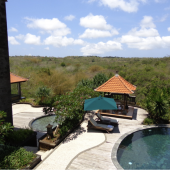
This article offers a brief summary of sustainability in general in the hospitality and tourism industry and introduces content information related to sustainability that may be helpful for use in hospitality and tourism education. Specifically, the paper focuses on the following question: What is the emphasis of sustainability education in the hospitality and tourism field? Themes in sustainability education in the lodging, meetings and events, and food and beverage sectors are identified, applications of sustainability practices in hospitality and tourism operations are introduced, and views about the future direction of sustainability education in this field are provided.
Continue Reading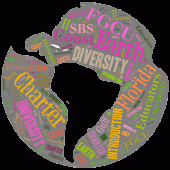
This article describes a collaborative online project that focused on the Earth Charter, particularly on its principles related to diversity. The project was conducted in two online courses of three sections in two colleges at Florida Gulf Coast University (FGCU): the College of Arts and Sciences and the College of Education. One section of twenty-three students in a Composition II course and fifty-four students in two sections of an Introduction to Diversity for Educators course collaborated in mixed teams on a four-stage problem solving project that exposed the participants to a larger community of learners and reinforced shared responsibility for the present and future welfare of the human family and the global community.
Continue Reading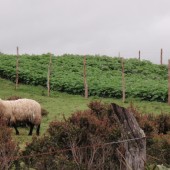
In this interesting comparison of sustainability in very different geographic and cultural settings—Long Island, New York versus the Chiloé archipelago, Chile—Vercoe and Brinkmann suggest that the societal framework for sustainability requires very different educational efforts. Their in-depth analysis of how these societal frameworks are almost diametrically opposed opens us to understanding how important geography is to the way we formulate our educational goals and systems.
Continue Reading
Jenny Finn reminds us that we all carry a full geography of internal landscapes, embodied in the simple act of breathing. As we consider the deep and complex issues that entering learning about sustainability in the outer world, is it not essential, she asks, that we connect, profoundly through each breath we take, with those internal landscapes?
Continue Reading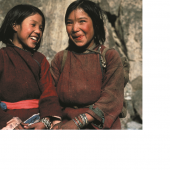
In this deeply cohesive and fundamentally geographic argument, Helena Norberg-Hodge brings an impressive array of sustainability issues under a single guiding rubric for educating and changing society—the need for a shift from globalised systems to local practice. While every point in her argument is backed with interesting details—including her fascinating experiences with the Himalayan Ladakhi people—she is consistent in bringing us back to valuing localisation and yet measured in her prescription which calls for gradual shifts, not radical and potentially harmful jumps, towards localisation.
Continue Reading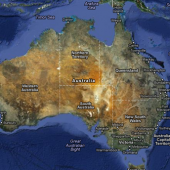
In this report from “down under,” Linda Zibell recounts the triumph of eco-centric language over a techno-centric approach to bringing sustainability into the Australian school curriculum. She brings deep insight into deconstructing the power of word choice and language patterns with real examples of how school-age kids might perceive and understand the words we use.
Continue ReadingThis work proposes a novel theoretical framework for sustainability education and explores four possible applications of the framework. Insights from complexity and complexity education elide with patterns from nature to birth four patterns of regenerative, emergent education. In this work I explore these four natural systems models of emergence and apply them to education. For […]
Continue Reading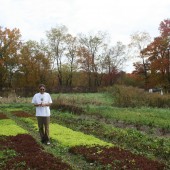
In this fascinating personal and educational journey, Terril Shorb asks us to look locally and look at our own subsistence first when we consider sustainability. While acknoledging a role for large-scale efforts based on technology, he believes in the inward solution that relies on relationships, being resourceful, working reciprocally, and finding a way of living in gifted subsistence.
Continue Reading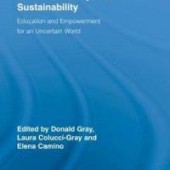
In this insightful review, John Gist gives us some perspective for thinking about science education and its potential for framing the sustainability debate. This is a brief introduction to Gray et al.’s fascinating book Science Society and Sustainability: Education and Empowerment for an Uncertain World. Gist presents the issue of uncertainty in science, in all its complexity, and finds value in the book for addressing deep understanding in a comprehensible and useful way.
Continue ReadingEducation for sustainable development (ESD), a UN initiative, is an emerging field and a movement advocating for a reorientation of education. Integration of ESD has been slow, especially in higher education. The most notable progress is marked by campus greening and research initiatives, while pedagogical innovation, the topic of this paper, has been much slower […]
Continue Reading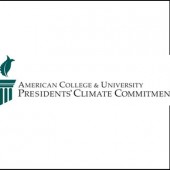
Anthony Cortese and Richard Cook’s clarion call for colleges to join the Presidents’ Climate Commitment lays out the stakes in no uncertain terms. They succinctly define what sustainability education really means in terms of every-day concrete changes for which every institution of higher learning should strive.
Continue Reading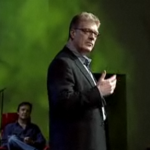
The TED (Technology, Entertainment, Design) website brings videos of world-class TED conference talks to everyone’s finger-tips. Something about the website gets us hooked, and the daily inspiration for ourselves, and our students, keeps us coming back for more.
Continue Reading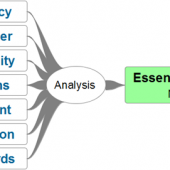
Bryan Nichols calls out to JSE readership to get involved in defining what essential ecoliteracy includes. His comprehensive, interactive methodology has worked from a literature search-and-survey analysis to create a mind-map of the domains and components of essential ecoliteracy. Readers can find out more here; then play with the mind-map online and send Nichols an online or print survey.
Continue Reading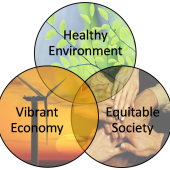
Nolet and Wheeler make the case for a shift from environmental education to sustainability education in K-12 curricula. They provide the legislative and policy details for that shift in Washington State and discuss some of the current curricular initiatives that meet the mandate for sustainability education.
Continue Reading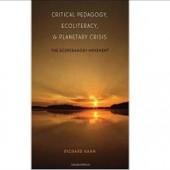
Beth Pollock provides the historical roots and inspiration of Kahn’s Ecopedagogy in Freire and Illich, giving us a good pre-view of what to expect in the book. She finds Kahn’s call for a new kind of pedagogy, founded in these greater thinkers, timely as we work towards establishing educational processes that provide the necessary literacy to face ecological and sustainability issues now and in the future.
Beth Pollock nos indica las raíces históricas y la inspiración por la formulación del “Ecopedagogía” de Richard Kahn, basado en Freire y Illich, dándonos un buen previsto de que los se espera en el libro. Ella encuentra algo pertinente en la llamada de Kahn para una nueva pedagogía, fundada en estos grandes filósofos, mientras trabajamos hacia el establecimiento de un proceso educativo que provee el entendimiento necesario para enfrentar los asuntos ecológicos y de sustentabilidad actualmente y en el porvenir.
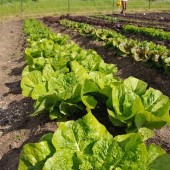
In an insightfully pragmatic way, John Gookin shows us how we can incorporate sustainability concepts into an innovative curriculum like that of NOLS without forcing the issue. He espouses the NOLS “organic” approach to curriculum design, where each taught element serves a real purpose, while finding great instances for including sustainability theory and practice.
Continue ReadingDear Readers, We hope that this first issue of the Journal of Sustainability Education (JSE) is the beginning of something that will last for decades to come. We believe that the human systems and institutions currently operating are often at odds with long term health of our planet. The social justice and environmental movements have […]
Continue Reading